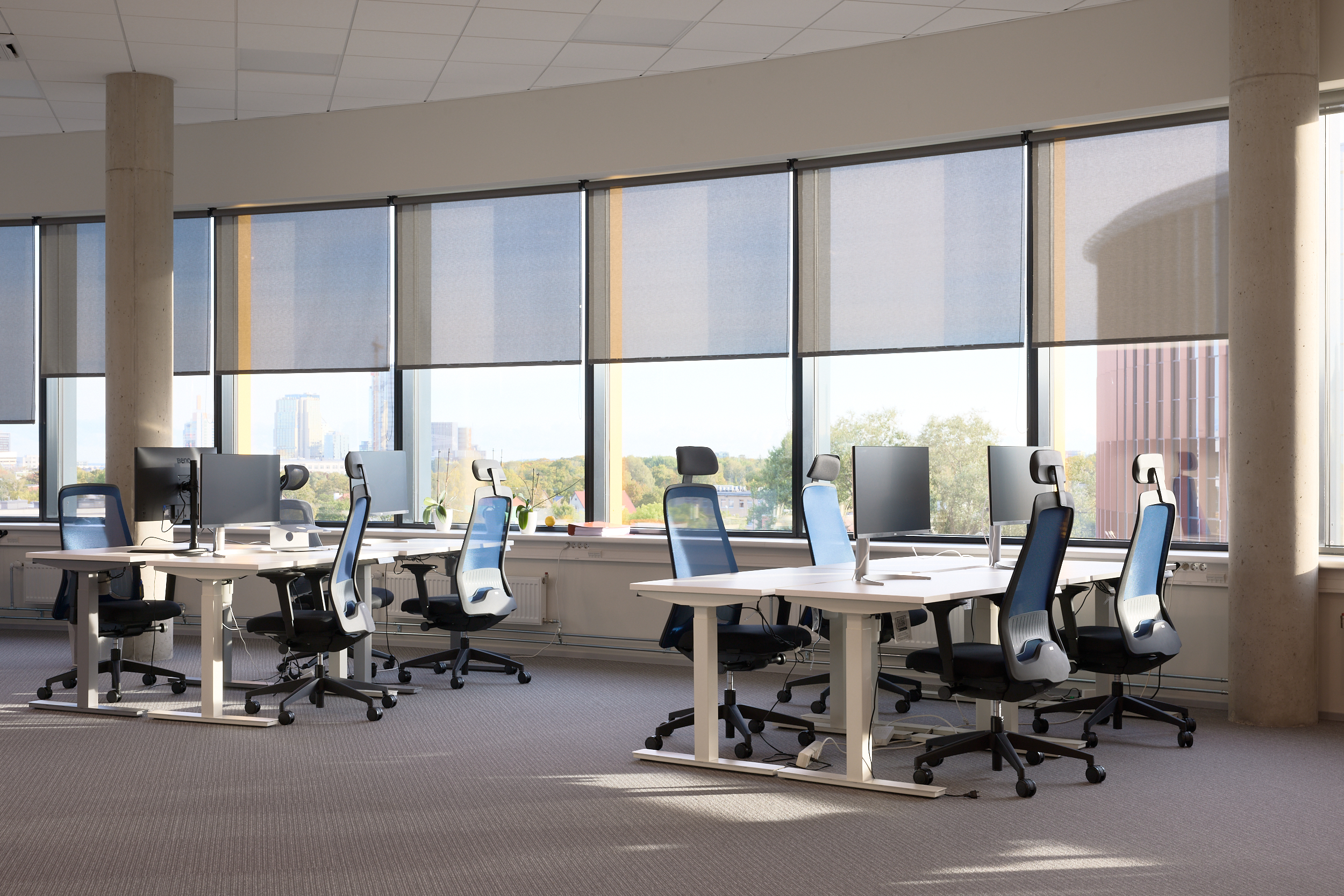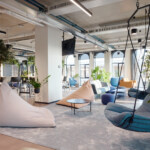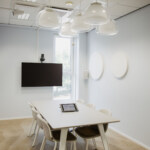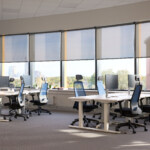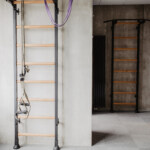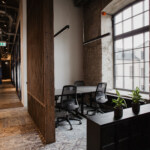The development of modern technology allows employees to increasingly work from home or other remote locations. Virtual and hybrid offices are becoming particularly important this year, offering flexibility and allowing team members to connect independently of physical location.
This undoubtedly affects companies when planning new offices, as they need to consider how many jobs actually require a physical presence in the office.
Technological innovations in workspaces
This year, smart solutions like the Internet of Things, artificial intelligence and machine learning are expected to be more tightly integrated into office spaces. For example, smart lighting systems, climate control, and security solutions can automatically respond to employees’ needs, thereby increasing workspace and energy efficiency.
Focus on Health and Well-being
The design of work environments increasingly focuses on employee health and well-being from year to year. Office noise levels can significantly impact employee concentration, induce stress, and reduce overall satisfaction in the work environment. To reduce this, it’s important to consider office space utilization and create alternative private workspaces where individuals can concentrate peacefully.
Stress relief in the office is also facilitated by integrating health centers and ergonomic workstations. In many OCCO-furnished offices today, adjustable desks are a common feature, ensuring a conducive environment for employees. In the future, workspaces may offer various health-supporting services, including meditation rooms, healthy food options, and sports and fitness facilities. OCCO, for instance, helped create exercise corners in Rail Baltic and Salv’s offices last year, providing employees with a space to take a short break from work and rejuvenate physically.
Sustainable Work Environments
Sustainability-focused trends continue to grow globally, including in workspaces. This year, more sustainable construction solutions, energy-efficient technologies, and environmentally friendly office designs are expected. Commitment to sustainability affects a company’s reputation – employees increasingly value companies that are environmentally responsible. Material selection and energy-efficient lighting, heating, and cooling systems play a crucial role in minimizing environmental impact.
Inclusive and Diverse Workspaces
Inclusion and diversity are becoming increasingly important in workplace culture. Future workspaces promote collaboration and idea exchange. Open workspaces, combined with more private areas, create an environment where different teams can communicate and inspire each other. Workspaces that value diversity can promote innovation and help companies attract and retain talents from diverse backgrounds.
Employee Involvement in the Design Process
Companies are increasingly involving employees in the design and planning of workspaces. This not only strengthens team unity but also allows better consideration of each individual’s work style, preferences, and needs. Involving employees in the process creates a positive environment for everyone.

